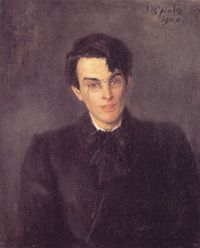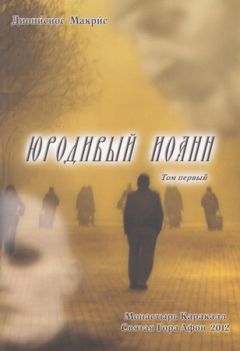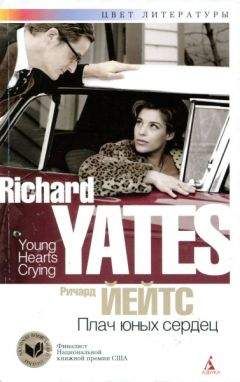Тонут в озере лесном,
Остров прячется зеленый.[35]
Там, где цапля бьет крылом,
Крыс пугая водяных, -
Мы храним от глаз чужих
Полные до верха чаны
Вишен краденых, румяных.
Так пойдем, дитя людей,
В царство фей, к лесной воде, -
Крепче за руку держись! -
Ибо ты не понимаешь, как печальна жизнь.
Где луна холодным глянцем
Берег Россеса[36] зальет,
До утра старинным танцем
Мы сплетаем хоровод -
В колыханье рук и взоров
До утра прядем узоры
Под луной у дальних вод.
Беззаботно и легко
Мы порхаем над волнами
В час, когда слепыми снами
Мир объят людской.
Так пойдем, дитя людей,
В царство фей, к лесной воде, -
Крепче за руку держись! -
Ибо ты не понимаешь, как печальна жизнь.
Где вода с холмов струится
В озерца на дне Глен-Кар,[37]
Где звезда не отразится,
Затерявшись в тростниках,
Мы форели полусонной
Беспокойные виденья
На ухо поем,
Меж травы, в слезах склоненной,
То мелькнем прозрачной тенью,
То опять замрем.
Так пойдем, дитя людей,
В царство фей, к лесной воде, -
Крепче за руку держись! -
Ибо ты не понимаешь, как печальна жизнь.
С потемневшими очами
Он идет на зов:
Не слыхать ему мычанья
Стада с солнечных холмов,
Не видать возни мышиной
Возле ящика с крупой,
Пенье чайника в камине
Не вдохнет в него покой.
Он уходит от людей,
В царство фей, к лесной воде, -
Крепче за руку держись! -
Ты вовеки не узнаешь, как печальна жизнь.
The Stolen Child
Where dips the rocky highland
Of Sleuth Wood in the lake,
There lies a leafy island
Where flapping herons wake
The drowsy water-rats;
There we've hid our faery vats,
Full of berries
And of reddest stolen cherries.
Come away, O human child!
To the waters and the wild
With a faery, hand in hand,
For the world's more full of weeping than you can understand.
Where the wave of moonlight glosses
The dim grey sands with light,
Far off by furthest Rosses
We foot it all the night,
Weaving olden dances,
Mingling hands and mingling glances
Till the moon has taken flight;
To and fro we leap
And chase the frothy bubbles,
While the world is full of troubles
And is anxious in its sleep.
Come away, O human child!
To the waters and the wild
With a faery, hand in hand,
For the world's more full of weeping than you can understand.
Where the wandering water gushes
From the hills above Glen-Car,
In pools among the rushes
That scarce could bathe a star,
We seek for slumbering trout
And whispering in their ears
Give them unquiet dreams;
Leaning softly out
From ferns that drop their tears
Over the young streams.
Come away, O human child!
To to waters and the wild
With a faery, hand in hand,
For the world's more full of weeping than you can understand.
Away with us he's going,
The solemn-eyed:
He'll hear no more the lowing
Of the calves on the warm hillside
Or the kettle on the hob
Sing peace into his breast,
Or see the brown mice bob
Round and round the oatmeal-chest.
For be comes, the human child,
To the waters and the wild
With a faery, hand in hand,
from a world more full of weeping than you can understand.
О, кто сказал, что красота минует, словно сон?
Тоскуют алые уста, надменны и скорбны,
О том, что мир не посетят чарующие сны
С тех пор, как траурным костром взметнулся Илион[38]
И пали Уснеха сыны.[39]
И мы в тревогах и трудах рассеемся, как дым,
Но среди обликов людских, струящихся с земли,
Под бренной пеною небес, где звезды отцвели,
Меж вереницы бледных волн под ветром ледяным
Пребудет одинокий лик.
Склонитесь, ангелы, пред ней в заоблачном дому!
До вас и прежде, чем в тиши раздался первый вздох,
Над бездной водною витал усталый добрый Бог:
Он расстелил зеленый мир по слову Своему
Ковром для этих легких ног.
The Rose of the World
Who dreamed that beauty passes like a dream?
For these red lips, with all their mournful pride,
Mournful that no new wonder may betide,
Troy passed away in one high funeral gleam,
And Usna's children died.
We and the labouring world are passing by:
Amid men's souls, that waver and give place
Like the pale waters in their wintry race,
Under the passing stars, foam of the sky,
Lives on this lonely face.
Bow down, archangels, in your dim abode:
Before you were, or any hearts to beat,
Weary and kind one lingered by His seat;
He made the world to be a grassy road
Before her wandering feet.
Как играю на скрипке в Дунее[40] -
Ходит пляс морскою волной.
А двоюродный брат мой — священник,
И священник — мой брат родной.
Пусть читают святые книги -
Я и в этом не уступил:
Всё читаю я книгу песен,
Что на ярмарке в Слайго[41] купил.
Как помрем и пойдем на небо
И придем к Петру у ворот,[42]
Всех троих он улыбкой встретит,
Но меня пропустит вперед,
Потому что праведный — весел,
Коль родился не в горький час,
А веселым по нраву скрипка,
А веселым по нраву пляс.
И, завидев меня, столпится
Райский люд, закричит: "Вот те на!
Да ведь это скрипач из Дунея!" -
И запляшет, как в море волна.
* * *
В оригинале упомянуты два топонима, опущенные при переводе:
Килварнет (Kilvarnet) — округа селения Баллинакарроу (Слайго).
Мохарабуи, Махерабой (Mocharabuiee, Magheraboy, гаэл. Machaire Bui — "Желтая равнина" или "Желтое поле битвы") местность на юго-западной окраине графства Слайго; местная приходская церковь находится в селении Баллинтой.
The Fiddler of Dooney
When I play on my fiddle in Dooney
Folk dance like a wave of the sea;
My cousin is priest in Kilvarnet,
My brother in Mocharabuiee.
I passed my brother and cousin:
They read in their books of prayer;
I read in my book of songs
I bought at the Sligo fair.
When we come at the end of time
To Peter sitting in state,
He will smile on the three old spirits,
But call me first through the gate;
For the good are always the merry,
Save by an evil chance,
And the merry love the fiddle,
And the merry love to dance:
And when the folk there spy me,
They will all come up to me,
With "Here is the fiddler of Dooney!"
And dance like a wave of the sea.
Строки, написанные в минуту уныния
Когда же я глядел в последний раз
На черных леопардов под луной,
На волны длинных тел и зелень глаз?
И вольных ведьм на свете — ни одной,
Сих дам достойнейших: ни метел их, ни слёз,
Сердитых слёз их больше нет как нет.
Святых кентавров не сыскать в холмах,
И я жестоким солнцем ослеплен.
Воительница-мать, луна, вернулась в прах.
На рубеже пятидесяти лет
Я боязливым солнцем ослеплен.
Lines Written in Dejection
When have I last looked on
The round green eyes and the long wavering bodies
Of the dark leopards of the moon?
All the wild witches those most noble ladies,
For all their broom-sticks and their tears,
Their angry tears, are gone.
The holy centaurs of the hills are vanished;
I have nothing but the embittered sun;
Banished heroic mother moon and vanished,
And now that I have come to fifty years
I must endure the timid sun.
Шепталась с птицами луна, и я воскликнул: "Пусть
Не молкнут крики кулика и ржанки горький стон, -
Но где же нега слов твоих, и радость их, и грусть?
Смотри: дорогам нет конца, и нет душе приюта".
Медово-бледная луна легла на сонный склон,
И я на Эхтге[43] задремал, в ручьевой стороне.
Не ветер ветви иссушил, не зимний холод лютый, -
Иссохли ветви, услыхав, что видел я во сне.
Я знаю тропы, где идут колдуньи в час ночной,
В венцах жемчужных поднявшись из мглы озерных вод,
С куделью и веретеном, с улыбкой потайной;
Я знаю, где луна плывет, где, пеною обуты,
Танцоры племени Дану[44] сплетают хоровод
На луговинах островных при стынущей луне.
Не ветер ветви иссушил, не зимний холод лютый, -
Иссохли ветви, услыхав, что видел я во сне.
Я знаю сонную страну, где лебеди кружат,[45]
Цепочкой скованы златой, и на лету поют,
Где королева и король в блаженстве без отрад
Блуждают молча: взор и слух навек у них замкнуты
Премудростью, что в сердце им лебяжьи песни льют, -
То знаю я да племя птиц в ручьевой стороне.
Не ветер ветви иссушил, не зимний холод лютый, -
Иссохли ветви, услыхав, что видел я во сне.
THE WITHERING OF THE BOUGHS
I CRIED when the moon was murmuring to the birds:
"Let peewit call and curlew cry where they will,
I long for your merry and tender and pitiful words,
For the roads are unending, and there is no place to my mind."
The honey-pale moon lay low on the sleepy hill,
And I fell asleep upon lonely Echtge of streams.
No boughs have withered because of the wintry wind;
The boughs have withered because I have told them my dreams.
I know of the leafy paths that the witches take,
Who come with their crowns of pearl and their spindles of wool,
And their secret smile, out of the depths of the lake;
I know where a dim moon drifts, where the Danaan kind
Wind and unwind their dances when the light grows cool
On the island lawns, their feet where the pale foam gleams.
No boughs have withered because of the wintry wind;
The boughs have withered because I have told them my dreams.
I know of the sleepy country, where swans fly round
Coupled with golden chains, and sing as they fly.
A king and a queen are wandering there, and the sound




